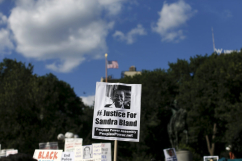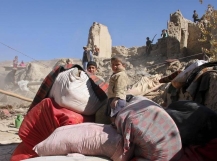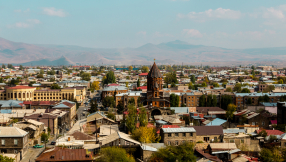A young woman was stoned to death in Afghanistan after being accused of having an adulterous relationship, officials said on Tuesday.
A graphic video captured on a mobile phone has emerged online showing the woman's apparent execution. Identified by officials as Rokhsahana, aged between 19 and 21, the young woman had been married against her will and was punished for trying to elope with a 23-year-old man.
The 30 second video shows her buried in a hole up to her neck, repeatedly professing her Muslim faith while men throw stones at her. The video ends before she is killed.
The incident took place in the village of Ghalmin on the outskirts of Firoz Koh, the capital of central Ghor province.
A spokesman for local government official Seema Joyenda told AFP that those carrying out the execution were "Taliban, local religious leaders and armed warlords".
The man Rokhsahana tried to elope with received only a lashing, the spokesman added.
Though death by stoning for adultery is forbidden under Afghan law, Taliban courts often hand out harsh punishments in line with strict Sharia law, according to Radio Free Europe. This can include death sentences or public floggings, and mob killings are not uncommon.
"This is the first incident in this area [this year] but will not be the last," Joyenda said.
"Women in general have problems all over the country, but in Ghor even more conservative attitudes prevail."
A report released by Amnesty International earlier this year condemned "women's subordinate legal, social and political position in Afghan society and the failure of the government to meet its obligations to ensure gender equality and address discriminatory social attitudes".
"Cultural, religious and social norms are at the root of the various kinds of abuse experienced by women human rights defenders," the report, titled 'Their lives on the line', said.
"As such, challenging those entrenched patriarchal patterns is central to the struggle to ensure that women and girls in Afghanistan are able to exercise their rights in full."
















